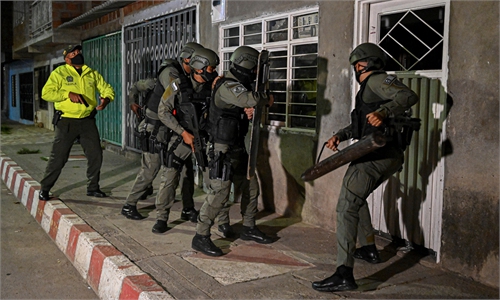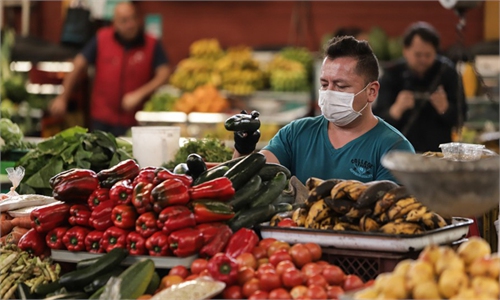Black, indigenous Colombians suffer malnutrition due to conflict: NGO
Indigenous Colombians suffer from malnutrition
Colombia's ongoing conflict with left-wing rebels has caused serious malnutrition problems amongst indigenous and black communities, according to a study led by Doctors of the World and published on Friday.

Since then, though, dissident FARC guerrillas and another leftist rebel group called the National Liberation Army have continued to fight with government troops in a multi-faceted conflict that also involves drug-traffickers and right-wing militias.
"The dynamics imposed by the armed actors in these territories, like confinement or the laying of antipersonnel mines and explosive devices, or simply fear, make people lose the ability to procure food," Nicolas Dotta, coordinator of Colombian Doctors of the World, told AFP.
The study looked at various black and indigenous communities in Choco, on the border with Panama, and the Awa tribe in Narino on the frontier with Ecuador, amongst others.
These people are at "greater risk of contracting diseases" as well as mental health problems, physical and psychosocial incapacity, and death. Clashes in Choco between the various belligerents have affected access to health services and forced people to shelter at home.
As well as chronic malnutrition, there have been outbreaks of malaria and tuberculosis in this jungle region.

A closed place and the chairs on the tables amid the quarantine decreed this weekend from Saturday to Tuesday due to the increase in COVID-19 cases in Bogota, Colombia, on Saturday. Photo: VCG
The NGO and a group of universities delivered the report to the truth commission set up to investigate atrocities related to the conflict as part of the historic 2016 peace accord that brought to an end more than a half century of conflict between the Revolutionary Armed Forces of Colombia (FARC) and the government.Since then, though, dissident FARC guerrillas and another leftist rebel group called the National Liberation Army have continued to fight with government troops in a multi-faceted conflict that also involves drug-traffickers and right-wing militias.
"The dynamics imposed by the armed actors in these territories, like confinement or the laying of antipersonnel mines and explosive devices, or simply fear, make people lose the ability to procure food," Nicolas Dotta, coordinator of Colombian Doctors of the World, told AFP.
The study looked at various black and indigenous communities in Choco, on the border with Panama, and the Awa tribe in Narino on the frontier with Ecuador, amongst others.
These people are at "greater risk of contracting diseases" as well as mental health problems, physical and psychosocial incapacity, and death. Clashes in Choco between the various belligerents have affected access to health services and forced people to shelter at home.
As well as chronic malnutrition, there have been outbreaks of malaria and tuberculosis in this jungle region.


